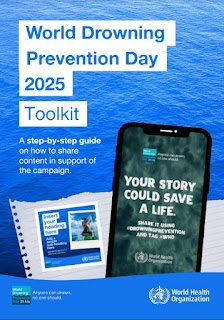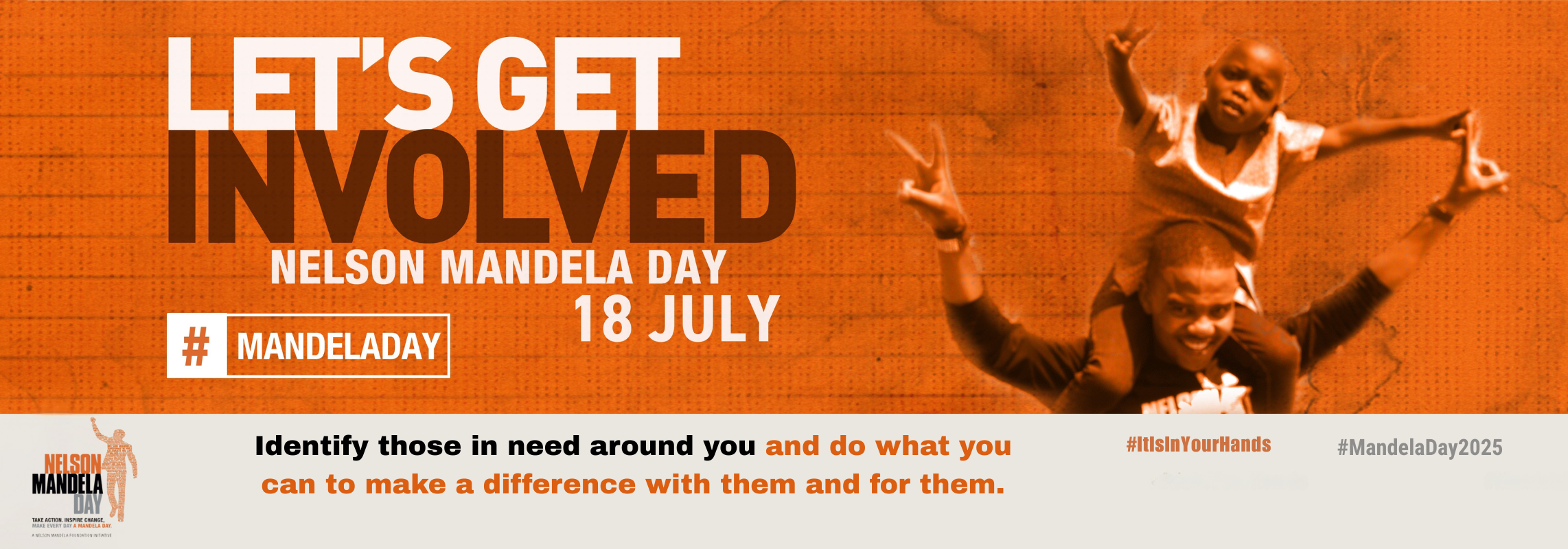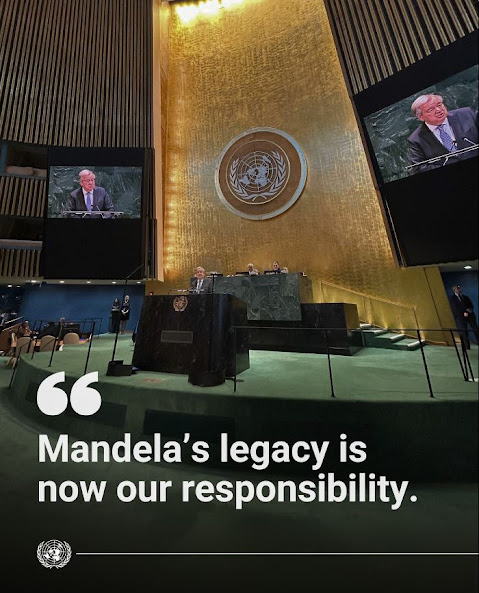FORUM: “
Rising Together- Women and Girls of African Descent Leading with Strength.”
International Day for Women and Girls of African Descent 2025. The woman and girl child of African descent embodies strength, resilience, and untapped potential, yet they remain among the most marginalized groups globally due to the intersection of racial, gender, and socio-economic discrimination. From limited access to quality education and healthcare to underrepresentation in political and professional spaces, they often navigate systemic barriers that hinder their development and violate their rights. Despite these challenges, they continue to rise—leading movements, excelling in academics and careers, advocating for justice, and breaking generational cycles of poverty and exclusion. Their lived experiences highlight not only the impact of injustice but also the transformative power of opportunity and equity. Empowering women and girls of African descent requires a comprehensive approach grounded in human rights, cultural affirmation, and inclusive policy-making. Governments, institutions, and communities must commit to dismantling discriminatory structures and investing in initiatives that ensure equal access to education, healthcare, justice, and leadership. It is only through intentional action—such as collecting disaggregated data, removing stereotypes, and implementing targeted programmes—that we can foster environments where women and girls of African descent thrive. In doing so, we not only uphold their dignity but also strengthen societies through their contributions, creativity, and leadership. Women and girls of African descent continue to face multiple and overlapping forms of discrimination, manifesting in higher rates of poverty (
SDG 1), barriers to education (
SDG 4), limited access to quality healthcare (
SDG 3), and underrepresentation in decision-making (
SDG 5,
SDG 10,
SDG 16). Despite these injustices, their resilience shines through. From grassroots organizing to professional excellence, their contributions are shaping communities, economies, and cultures. They are not just beneficiaries of development, they are leaders of it. The UN Human Rights notes that while women and girls of African descent have been at the forefront of movements for justice and equality, their contributions are often overlooked, even as they continue to face deep disparities in healthcare, education, employment, and the criminal justice system. The UN Human Rights considers it essential that anti-discrimination laws are adopted and enforced, and that gender-based approaches are fully integrated into all relevant programmes, using disaggregated data to ensure policies reflect the lived realities of those most affected. The Office supports this work by partnering with civil society, conducting research, and providing guidance to states. Through its Fellowship Programme for People of African Descent, the Office has trained over 160 change-makers from 50 countries, 72% of whom are women, to advocate for equality at national and international levels. Follow the conversation with the hashtags:
#25july,
#AfricanDescent,
#womenandgirls,
#RisingTogether, #Leadinfgwithstrengh,
#WomenandGirlsofAfricanDescent.
Statement of the UN Human Rights Chief Volker Türk on the International Day for Women and Girls of African Descent 2025.On this first international day of women and girls of African descent, we honor the courage, creativity, and contributions of this important community. And we call urgently and insistently for the advancements of their human rights. Women of African descent have been presidents, poets, physicists, and peacebuilders. and I've had the honor of meeting many of them throughout my work with the United Nations. The work of women of African descent sustains communities and economies. They are guardians of culture and traditional knowledge and they have led transformative movements against enslavement, colonialism and apartheid. In many countries, women of African descent are among the most consistent supporters of justice, of equality, and sustainable development. But women and girls of African descent are among the most marginalized groups in society due to centuries of entrenched oppression and exclusion. Women and girls of African descent face significant barriers to quality education and job opportunities in many countries around the world. They're disproportionately exposed to gender-based violence and sexual exploitation and the maternal mortality rates are up to five times higher than those of other groups. Women of African descent are largely excluded from political participation and leadership positions. They are more likely to face discrimination throughout the criminal justice system and to struggle for accountability on behalf of loved ones lost to police violence and racism. A woman of African descent may also be a migrant or have a disability or live in poverty or a combination of these compounding the discrimination they face.
We need to do so much better for girls and women of African descent, not only to realize their full human rights, but to create a safer, more equal and just world for everyone. Change begins with ensuring full respect for the human rights of all. and states need to adopt comprehensive anti-discrimination laws and policies based on data that is disaggregated by race or ethnic origin, sex, age, and other factors. We need to increase the participation and representation of women of African descent through special measures including quotas if necessary. My office supports a fellowship program that promotes equality for people of African descent at international and regional levels. Since 2011, this has helped 160 people from 50 countries, nearly three quarters of whom were women of African descent. More broadly, societies need to overcome the root causes of systemic racism and misogyny, including the legacies of colonialism, enslavement, and patriarchy.
Together, let's make justice and equality a reality for all women and girls of African descent.
Volker Türk, UN Human Rights Chief.
Statement by UN Human Rights Mechanisms ahead of the International Day of Women and Girls of African Descent 2025.“This 25 July 2025, we mark the first commemoration of the
International Day of Women and Girls of African Descent, proclaimed by the General Assembly in August 2024. This momentous occasion serves as a call to prevent and eliminate racism, racial discrimination, xenophobia and related intolerance against women and girls of African descent, to honour their profound contributions throughout history, and, together, and to reaffirm our solidarity with their ongoing struggles as we enter the
Second International Decade for People of African Descent (2025-2034).
We recall that in the
Durban Declaration and Programme of Action, States acknowledged the distinct and compounded manifestations of racism, racial discrimination, xenophobia and related intolerance, women and girls face, and called for gender-sensitive approaches in addressing racism and for the empowerment and protection of women and girls.
Throughout the centuries and despite facing oppression and marginalization, women and girls of African descent have contributed to build and shape their societies and communities: from science to literature, from politics to the arts, from sports to culture. They have sustained their communities through leadership, creativity, resilience, and care. They have stood up firmly as the guardians and defenders of the cultural memory, traditions and the legacy of people of African descent, transmitting them from generation to generation including during enslavement and colonialism. Tirelessly, sometimes anonymously and silently, they have preserved the social fabric of their communities and societies from destruction.
Regrettably, these contributions have gone largely underrecognized, undermined, overlooked, untold and unknown.
During the first International Decade for People of African Descent, significant progress has nevertheless been made in the recognition and empowerment of women and girls of African descent. In some regions, some women of African descent have reached the highest levels of political representation, accessing spaces of power and decision-making positions from which they had been systematically excluded for a long time. Their struggles have been at the forefront of racial justice movements and instrumental in advancing a deeper understanding of intersectional discrimination.
However, such historic steps forward should not mask the major, unaddressed challenges that hinder the full enjoyment of the human rights of women and girls of African descent in all areas of life, largely due to entrenched stereotypes, prejudices, and intersecting forms of discrimination.
Women and girls of African descent continue to face multiple forms of violence, online and offline. In political spheres, those holding positions of power have been often targeted by hate speech, harassment, were victims of misogynoir, and their capacities undermined, challenged or questioned. Migrant women of African descent are exposed to racialized abuse, sexual violence, unsafe deportations, and at risk of trafficking or re-exploitation. In some instances, they have been separated from their children in violation of their right to family life. In conflict-related situations, women and girls of African descent have paid the highest price of life and abuses, often with impunity.
The disproportionate effects of the COVID-19 pandemic on women and girls of African descent brought to the surface the inequalities and obstacles they face in accessing adequate health care services. Barriers to sexual and reproductive health rights and services remain severe and deeply entrenched. They still experience disproportionately high rates of maternal mortality, early pregnancy, and obstetric violence, which reflect the structural racial biases embedded in health care systems. Racial profiling and mass incarceration gravely impact their lives, perpetuating patterns of discrimination in the criminal justice system.
Across employment, housing, and access to social services, women and girls of African descent continue to fall behind in key socio-economic indicators in the societies where they live. They are employed in less skilled jobs and receive low wages compared to the rest of the population. High school dropout rates among girls of African descent and the poor quality of education impede their access to the labour market and jeopardize their advancement. Structural barriers also persist in the realms of climate and digital justice, where their needs and voices are often overlooked.
Confronting these injustices necessitates the regular collection and publication of reliable data disaggregated by race and ethnicity, gender and other factors to unveil the realities of women and girls of African descent, and to inform targeted policies and strategies to remedy the situation.
Against this backdrop, we urge States to seize the opportunity of this International Day to prioritize reparatory measures that address the lasting impacts of enslavement and colonialism endured by women and girls of African descent. This includes acknowledging and redressing historical, gendered forms of racial violence, such as sexual exploitation and abuse, and family separation.
We call on States and all stakeholders to implement the various recommendations we have issued notably by guaranteeing access to health, education, justice, housing, and decent work for women and girls of African descent including through temporary special measures aimed at achieving concrete and sustainable progress. We also urge States to implement their human rights obligations, the DDPA commitments and the relevant SDGs, fully and effectively, to addressing the multiple and intersecting forms of racism and racial discrimination women and girls of African descent experience and to promoting their advancement.
Advancing towards truly transformative justice requires placing the voices, experiences, and leadership of women and girls of African descent at the centre of ambitious political agendas, as well as making visible their role of preserving the history and culture of people of African descent.”
UN Human Rights Mechanisms.
The experts:Mr. Michał Balcerzak, Chairperson,
Committee on the Elimination of Racial DiscriminationMr. Joel M. Modiri, Chairperson,
Group of Independent Eminent Experts on the Implementation of the Durban Declaration and Programme of ActionAmb. James Ndirangu Waweru, Chairperson-Rapporteur,
Intergovernmental Working Group on the Durban Declaration and Programme of ActionMs. Tracie L. Keesee and Mr. Víctor Manuel Rodríguez Rescia, Experts of the
International Independent Expert Mechanism to Advance Racial Justice and Equality in the context of Law EnforcementMr. Martin Kimani, Chairperson,
Permanent Forum on People of African DescentMs. Ashwini K.P.,
Special Rapporteur on contemporary forms of racism, racial discrimination, xenophobia and related intoleranceMs. Bina D’Costa, Chairperson,
Working Group of Experts on People of African Descent 























